Animal kingdom VIII - Strange mutant - Platypus / Zvířecí říše VIII - Podivní mutant - Ptakopysk
When one sees this animal, one has to say "What the hell is that?" The same was thought by Sir George Shaw when, in 1799, he wrote the first written description of Ornithorhynchus anatinus simply put the Ptakopyska strange. Before he began to write for a long time, he examined the specimen sent from Australia and searched for seams and joints that would point to his iniquity.
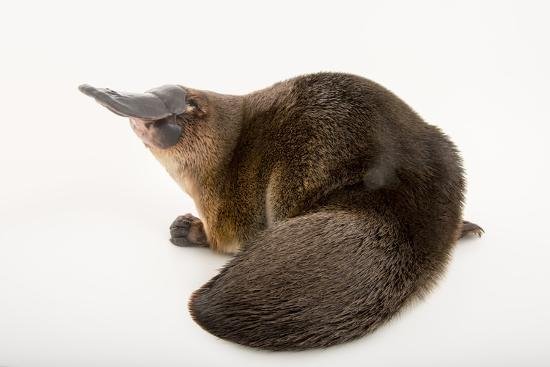
It was thirty years before the platypus was recognized as a mammal, because it had no classic teats, and it was difficult to find mammary glands under its dense coat to make the strangeness less. When the year 1884 was written by an embryologist of Scottish origin Mr. W. H Caldwell discovered the nest of Ptakopyska for the first time and confirmed that this mammal lays eggs! This is what the natives have said, but nobody believed them.
It is such a game of evolution, long the view that Platypus is among the grades between reptiles and mammals. However, according to today's research, this is plain nonsense, while Platypus is one of the oldest mammals but its peculiarities are merely evidence of the living creatures' ability to adapt to the environment.
Platypus feeds on crayfish, fish, earthworms and all he can swallow. They hunt mainly at night, lying between roots or in various stone cavities during the day. He found an interesting method for night fishing, the sense of smell and sight in his night water was useless. Therefore, its beak is covered with about 40,000 receptors, which can capture even the finest bioelectric pulses induced by the prey muscle system. In addition, the beak is still covered with motion-responsive sensors, allowing the Platypus to create an accurate 3D map of the underwater world.
In the water, thanks to his feet as fast as an otter, but on land he can pull the membranes and fully use the claws to rake, so he is nicknamed water mole.
To make the strangeness little, the Platypus creates poison. Thus, only males, the gland is located in the thigh of the hind leg, and the poison only produces in the mating season. Poison is not lethal, but it can cause tremendous pain. Scientists are still arguing about what the Platypus is. One option is to drive away other suitors.
In 1943, Churchill had the Prime Minister of Australia send a live Ptakopys. Unfortunately, "Winston" did not survive the journey. But Churchill had him stuffed and decorated his desk by the end of the war.

Když člověk vidí toto zvíře musí si říct " Co to sakra je?" To stejné si myslel sir George Shaw když roku 1799 pořizoval první písemný popis Ornithorhynchus anatinus jednoduše řečeno Ptakopyska podivného. Než vůbec začal psát dlouho zkoumal daný exemplář poslaný z Austrálie a hledal švy a spoje které by poukázaly na jeho nepravost.
Aby podivností nebylo málo, trvalo třicet let než byl ptakopysk uznán za savce, nemá totiž klasické struky a pod jeho hustou srstí se jen těžko hledaly mléčné žlázy. Když se psal rok 1884 embryolog skotského původu pan W. H Caldwell objevil poprvé hnízdo Ptakopyska a potvrdil že tento savec snáší vejce! Toto sice celou dobu tvrdily domorodci ale nikdo jim nevěřil.
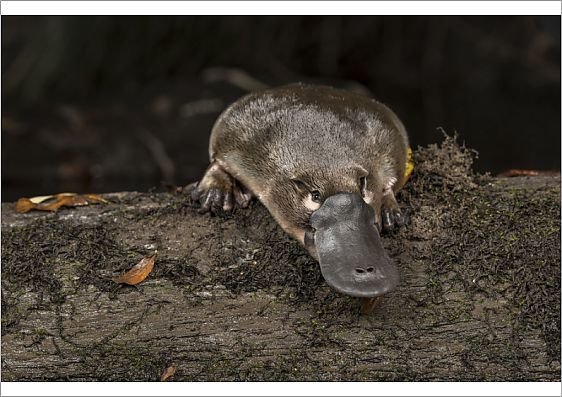
Jde o takovou hříčku evoluce, dlouho přetrvával názor že Ptakopysk je mezi stupen mezi plazy a savci. To je ovšem podle dnešních výzkumů holý nesmysl, Ptakopysk sice patří k nejstarším savcům ale jeho zvláštnosti jsou pouze důkazem vlastnosti živých tvorů přizpůsobit se prostředí.
Ptakopysk se živí raky, rybkami, žížalami a vším co dokáže polknout. Loví hlavně v noci, přes den se povaluje mezi kořeny či v různých kamenných dutinách. Pro lov v noci si našel zajímavou metodu, čich a zrak je mu v noční vodě k ničemu. Proto je jeho zobák pokrytý cca 40 000 receptory, ty dokážou zachytit i ty nejjemnější bioelektrické pulzy vyvolané svalovou soustavou kořisti. Krom toho je zobák ještě pokryt senzory reagujícími na pohyb, díky tomu si Ptakopysk dokáže vytvořit přesnou 3D mapu podvodního světa.
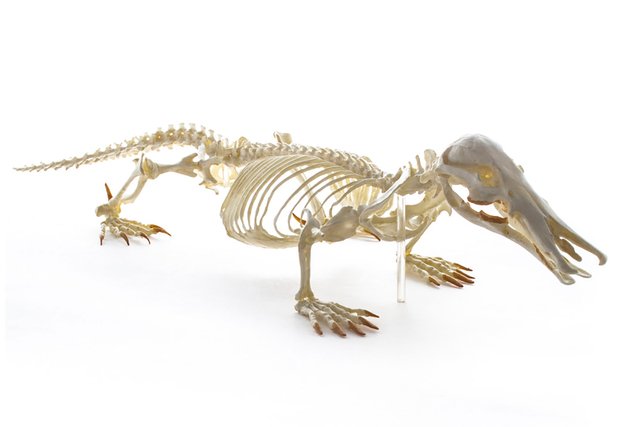
Ve vodě je díky svým nohám rychlí stejně jako vydra, zato na souši dokáže blány zatáhnout a plně využít drápy k hrabání, proto mu bývá přezdíváno vodní krtek.
Aby podivností nebylo málo Ptakopysk si vytváří jed. Tedy pouze samci, žláza se nachází ve stehně zadní nohy, a jed produkuje pouze v období páření. Jed není smrtelný, ale dokáže způsobit obrovské bolesti. Vědci se stále hádají k čemu vlastně Ptakopyskům je. Jedna z možností je zahánění dalších nápadníků.
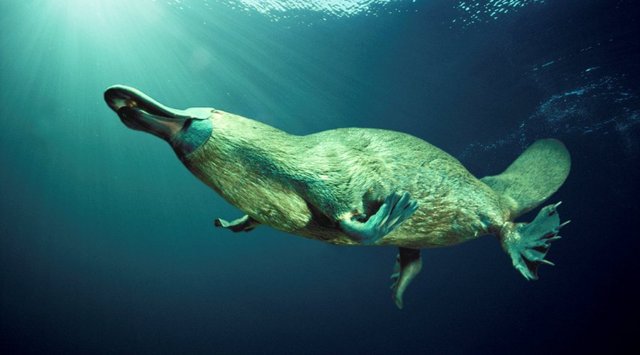
V roce 1943 si Churchill nechal od australského ministerského předsedy poslat živého Ptakopyska. Bohužel "Winston" cestu nepřežil. Churchill si ho ale nechal vycpat a do konce války zdobil jeho stůl.
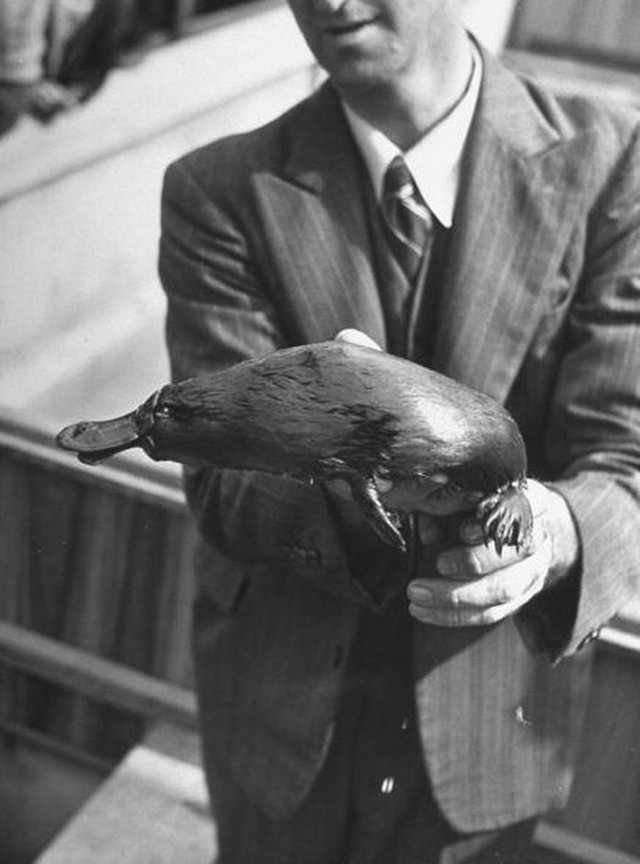
Congratulations @carnad! You have completed the following achievement on the Steem blockchain and have been rewarded with new badge(s) :
You can view your badges on your Steem Board and compare to others on the Steem Ranking
If you no longer want to receive notifications, reply to this comment with the word
STOPTo support your work, I also upvoted your post!
Vote for @Steemitboard as a witness to get one more award and increased upvotes!
Ptakopysk, jedno z nejpodivnějších stvoření, která kdy na naší planetě žila :) Díky za hezký článek.
Mimochodem, když už jsi tehdy propásal mou hmyzí foto soutěž, máš teď jedinečnou možnost předvést se v kategorii, která je pro tebe jako dělaná - plazi ;) Mrkni na můj dnešní post.
Aj! Téma super :D ale bude to dost na rychlo :D Obě zrcadlovky jsou v servisu na čištění :D
Však můžeš použít něco staršího ;) Zatím je účast celkem slabá, takže šance na výhru je vysoká.